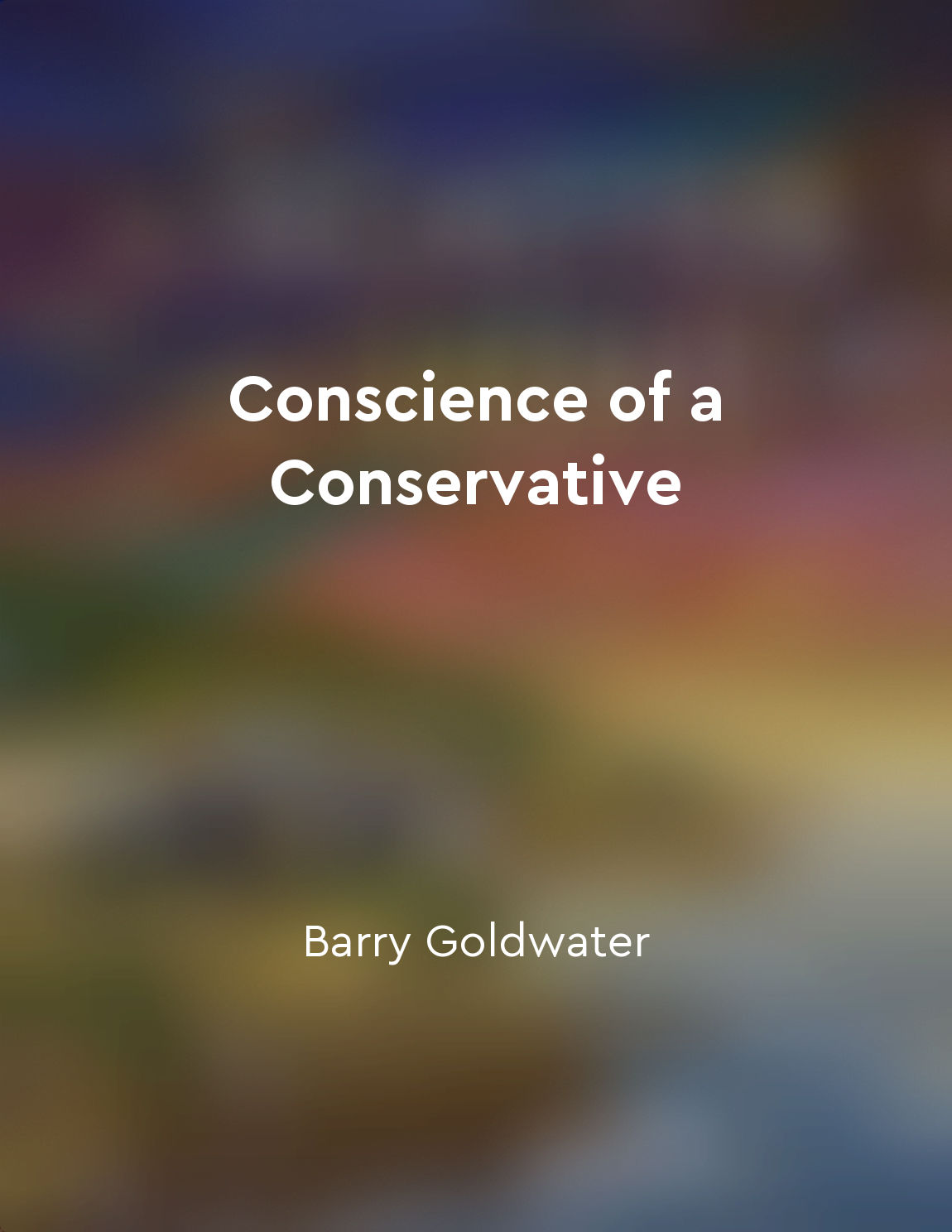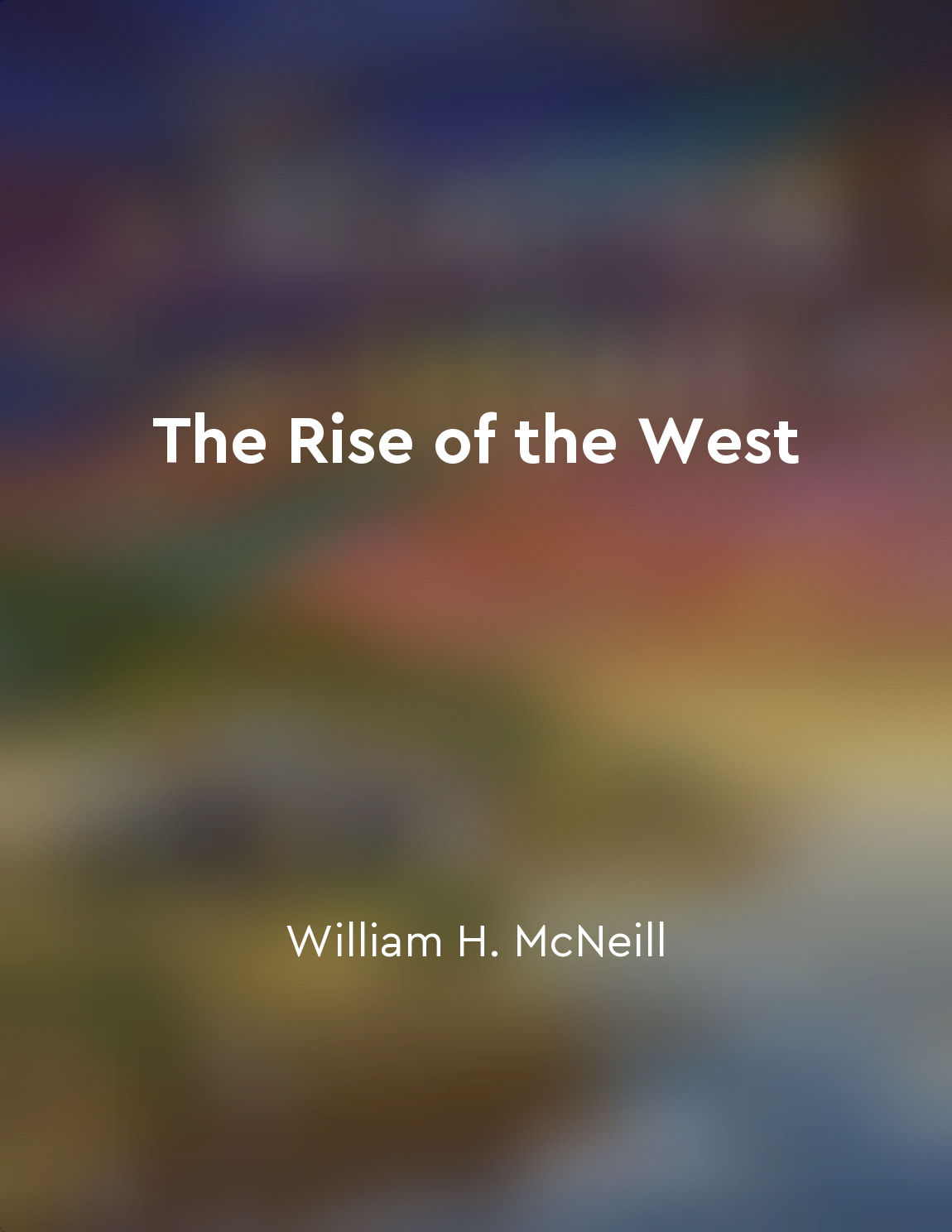Political institutions play a crucial role in shaping societies from "summary" of The Rise of the West by William H. McNeill
Political institutions have always played a crucial role in shaping societies throughout history. From ancient empires to modern nation-states, the structures and functions of political institutions have had a significant impact on the development and direction of societies. These institutions not only govern the distribution of power and resources within a society but also influence the values, beliefs, and norms that shape the behavior of individuals and groups. In some cases, political institutions have served as mechanisms for social control, maintaining order and stability within a society through the enforcement of laws and regulations. For example, the Roman Empire relied on a complex system of laws and institutions to govern its vast territories and diverse populations. These institutions helped to establish a sense of unity and cohesion among the various peoples under Roman rule, while also reinforcing the authority of the imperial government. At the same time, political institutions can also be sites of conflict and contestation, as different groups compete for power and influence. Throughout history, struggles over political institutions have often been central to larger social and political movements. For instance, the rise of democracy in ancient Greece was driven by a desire to challenge the power of aristocratic elites and create a more inclusive and participatory form of government. Moreover, political institutions can shape economic systems and patterns of social organization. The development of capitalism in Western Europe, for example, was closely tied to the growth of strong centralized states and the emergence of new forms of political organization. These institutions provided the legal and institutional framework necessary for the expansion of markets and the development of commercial enterprises.- The influence of political institutions on societies is undeniable. Whether through the maintenance of order, the resolution of conflicts, or the promotion of economic development, political institutions play a crucial role in shaping the course of human history. By understanding the complex interplay between politics and society, we can gain valuable insights into the dynamics of social change and the forces that have shaped the world we live in today.
Similar Posts
Cultivating resilience is necessary for survival
In the face of unpredictable challenges, societies must develop the ability to bounce back and adapt - in other words, resilien...

Welfare programs should encourage selfreliance
The idea that welfare programs should encourage self-reliance is a fundamental principle that must guide our approach to social...
Market forces drive capitalist economies
Market forces play a fundamental role in shaping capitalist economies. These forces, such as supply and demand, competition, an...
Complexity of human societies increases over time
Human societies have evolved over time, moving from simple bands of hunter-gatherers to complex civilizations with intricate sy...
Human reason is fallible in politics
The proposition that "human reason is fallible in politics" is a fundamental insight into the nature of political life. When we...
Reflect on the lessons learned from history and their relevance to the present day
Throughout the annals of history, we are presented with a wealth of knowledge and wisdom that can guide us in navigating the co...
Zen Buddhism teaches the practice of mindfulness and meditation
Zen Buddhism emphasizes the importance of being fully present in the moment, rather than dwelling on the past or worrying about...

Legal development mirrors societal change
The evolution of law is closely intertwined with the transformation of society. Legal systems do not exist in isolation; they a...
The leadership of emperors like Nero and Caligula contributed to Rome's decline
The leadership of certain emperors, such as Nero and Caligula, played a significant role in the decline of the Roman Empire. Th...
Concept of failed states and their impact on global order
Failed states are a significant challenge to the stability and order of the global system. When states fail to provide basic se...


